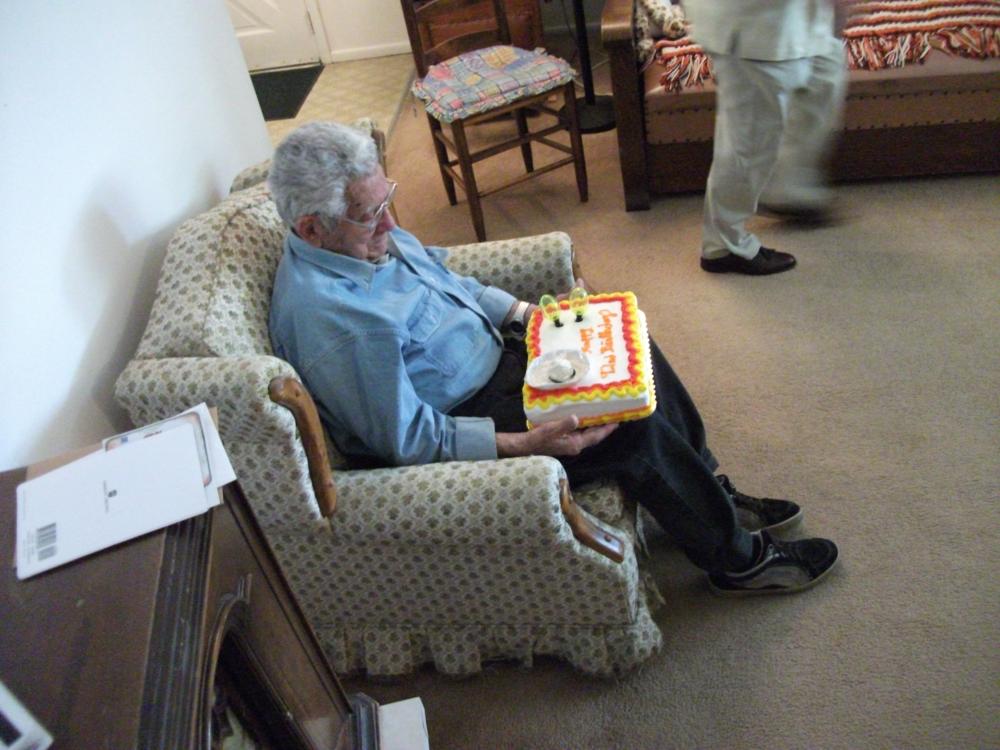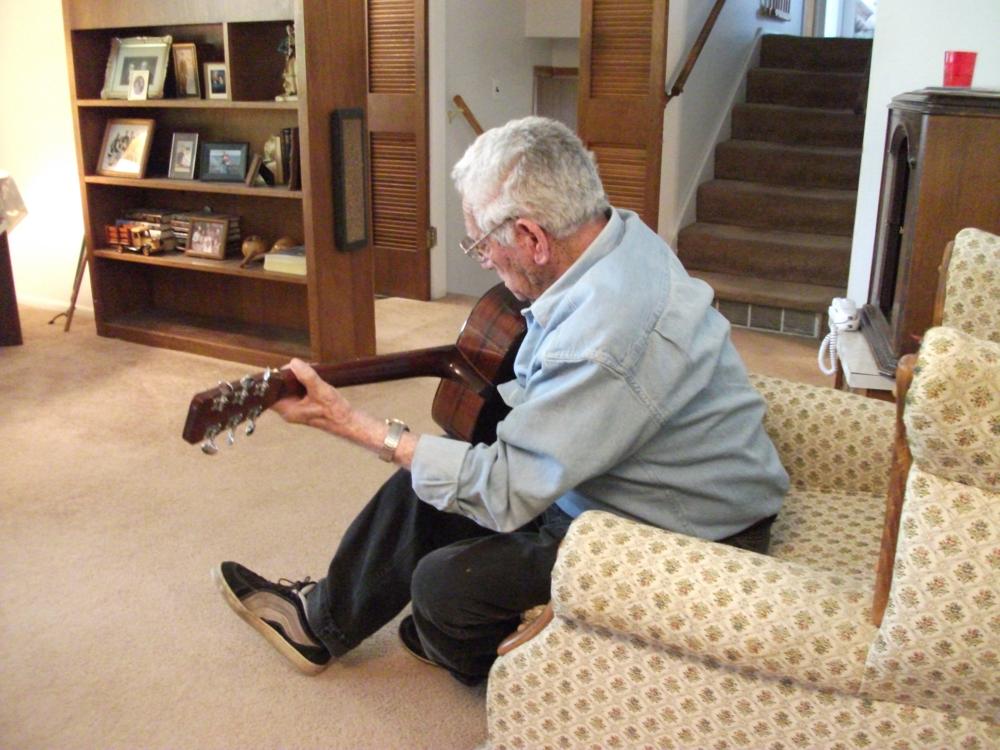 Domingo celebrated his 92nd last Wednesday and Saturday we went to the local cemetery where we visited the grave sites of our wife/mother LuDean, daughter/sister Peggy, and twin infants/siblings Dawn and Dwaine. A few photos of “El Viejo” celebrating a long, full life.
Domingo celebrated his 92nd last Wednesday and Saturday we went to the local cemetery where we visited the grave sites of our wife/mother LuDean, daughter/sister Peggy, and twin infants/siblings Dawn and Dwaine. A few photos of “El Viejo” celebrating a long, full life.








2 thoughts on “Birthdays and Remembering”
Thanks, bro.
Thanks for your email from Madrid yesterday. Sounds like fun.
The cake and its decorations are from Mary and Dale. The “yellowish plastic-looking things” are maracas. (See-through is a fine touch, I think. Always good to know what one is shaking inside the shell, eh?)
As for thoughts on memory, nostalgia, and melancholy from “No Way (Man),” he was getting confused over the abbreviation of melancholic nostalgia to MN because every time he read that Minnesota came to mind, it also serving as the official abbreviation of Minnesota for postal purposes. So NW(M) couldn’t overcome the abbreviated distraction in order to process your meditation on memory and nostalgia.
BTAIM–be that as it may–I think NW(M) would agree with your comments wholeheartedly and simply add that the mental/psychological/emotional processes of reasserting a kind of ordered sense of self–stabilizing the self and his-her cultural narratives–depends on the ability to create simultaneity in our identities, i.e. past=>present<=future. And I think he would argue that is functionally a fictionalizing process because it is metaphorical, imaginative, and fundamentally speculative because the data are never really pure, direct, and unmediated even if they appear to be "hard," experiential, and objective. Situational, contextual, framed are words that come to NW(M)'s mind, I would guess, that best describe any cultural system that organizes individual members' everyday imaginative lives in material worlds. I think Buddha might suggest that it is these cultural systems which deceive/train us to think narcissistically about our lives, that somehow we are the centers of the world and that the inevitable suffering or dissatisfaction that follows from the constant worry over and inability to adequately quench that desire for fulfillment and satisfaction would also play out in our craving for reconnection with the dead and giving birth to new generations of mini-me's. And this seems to usually be imagined and acted on in exceptionalist ways: our god is greatest and we are his chosen people carrying out his divine work, my family is the best and brightest and our seed will replenish the earth, we will all be reunited one day, our people's creation story explains everything one needs to know about this world and one's place in it, all evil--but not us because we are good--will ultimately be contained or destroyed, etc, etc, etc. The melancholy and nostalgia, including my own, function to reassert our centeredness when we are effectively feeling decentered and uncovered; when the narrative fails to cover all its psychological, emotional, and realistic bases, I think. When suffering sets in as an experience of loss or separation from how we imagine ourselves at the center of everything--in control, as masters--we go outside the bounds of our everyday material lives to symbolically and figuratively reassert control through ritualistic action, language, and story. It doesn't matter that these practices are often "unrealistic." The irony is that their power of seduction relies on their improbability, their magical qualities. Indeed, it is that "sacred" aspect of the regular uttering of and performing magical practices that makes their hypnotic, emotional effect so palatable and "real" for adherents. But it is also that overwhelming need to feel and imagine the reality of an unimaginable, unapproachable redeeming power--the catharsis experienced and felt with external objects or doctrines that suffering seems to require so often because most religious practices teach that the sufferer cannot address the source of suffering alone and therefore has no hope of joy alone--that is at the center of humanity's melancholy and nostalgia. Enough for now. I like the arm-chair variety of philosophizing, BTW. Gracias, de nuevo, 'mano. Paz.
Hey bro,
these are muy preciosos. I especially like the dual self-portrait of you and dad. That does take some skill.
Did you come up with the sombrero idea for the cake? That was a very nice touch. Can you also tell me what the two yellowish plastic-looking things are in the top right-hand corner of the cake? I can’t quite make them out.
Looking at the photos, I try to see things in them such as our past, Dad’s past, the family’s past and inheritances. All of this is so large and complicated to take in. In the process of attempting to do so, one might become quite melancholy or, at least, nostalgic. Perhaps it is melancholic nostalgia. I wonder if MN is not so much the desire to recover the irrecoverable past but more the lack of ability to be able to comprehend it in the present. These to me seem to be quite different things. Depending on one’s conception of time–that is, if time passes, then, yes, perhaps we are placed in the position of MN when trying to recapture and understand the past. On the other hand, and maybe the No Way (man) might have more perspective on this, if time does not pass, but rather time is always present and conceptions of time past and future are figments of the imagination, perhaps then this is what we need to understand. Melancholic nostalgia is a misdiagnosis for the effects of time passing and the desire to recover. We need not concern ourselves with this lack of ability to recover. It’s all good becomes it’s all one. Remember that the next time you make a bad swing on the golf course: it’s all one.
Thanks so much for the gift of the photos. Sorry for lapsing into arm-chair philosophy.